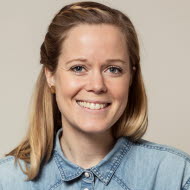General information on third‑cycle education
Information on third-cycle education, such as the subjects available, the Higher Education Ordinance, equal opportunities and student representation.
Subjects and contacts
Questions about third-cycle courses and study programmes are answered by the heads of subject:
Occupational Health Science: Erika Wall
Public Health Science: Katja Gillander Gådin
Business Administration: Peter Öhman
Comparative Literature: Anders Johansson
History: Samuel Edquist
Sports Science: Helen Hanstock
Human Geography: Kristina Zampoukos
Nursing: Lisbeth Kristiansen
Education: Jimmy Jaldemark
Psychology: Fredrik Åhs
Social Work: Sabine Gruber
Sociology: Katarina Giritli Nygren
Political Science: Niklas Bolin
Tourism Studies: Robert Pettersson
Research Faculty
The Research Faculty bears overall responsibility for the quality, development and implementation of the courses and study programmes in the subjects that have third-cycle degree-awarding powers.
Student representation
As a research student (doctoral student), you have many opportunities to influence your own education, and it is important to take advantage of that chance!
Every research subject has a Research Board (FK) where researchers meet to discuss and make decisions on matters relating to research and postgraduate training. In each research college, doctoral students in the subject have the right to have a representative.
The Council for postgraduate education (RUF) has overall quality responsibility for the faculty's postgraduate education and decides, among other things, on the admission of postgraduate students and faculty-joint courses. In RUF, the faculty's doctoral students can have three representatives.
The faculty board is the faculty's highest decision-making collegial forum where many strategic issues are discussed and decided. In the faculty committee there are two places for student representatives and one of them is usually a doctoral student.
It is the student unions that appoint all student representatives, contact them if you are interested in getting involved in, for example, research and postgraduate education issues.
Equal opportunities and Student Health Care
Equal opportunities
Everyone should feel motivated and welcome to work and study at Mid Sweden University. Employees and students must be treated with respect and dignity, and differences must be considered to promote individuals’ opportunities for work and study regardless of gender, gender identity or expression, ethnicity, religion or other beliefs, disability, sexual orientation, and age.
Report on equal opportunities in the third-cycle programme
Read more about Mid Sweden University's efforts to create equal opportunities
Student Health Care
The Student Health Centre provides preventive health care for students at Mid Sweden University and is a complement to the public health care system. Read more about what the Student Health Centre can help you with.
Governance and documents
Following documents and pages are in Swedish if you need translation, please contact Sara Häggström.
Information about third-cycle studies
The Swedish National Union of Students has published a handbook contains tips and advice for doctoral students and licentiate students, ‘The PhD Handbook’. This also contains information on the rights of doctoral students and information about admission to doctoral studies.
Read more on their website: phdhandbook.se
Young Academy of Sweden have launched A Beginner’s Guide to Swedish Academia.
Contact

